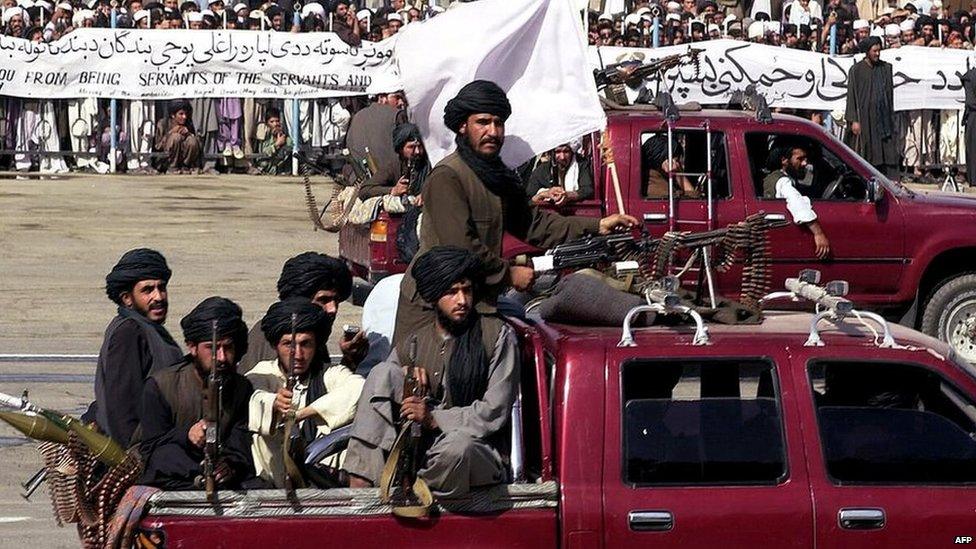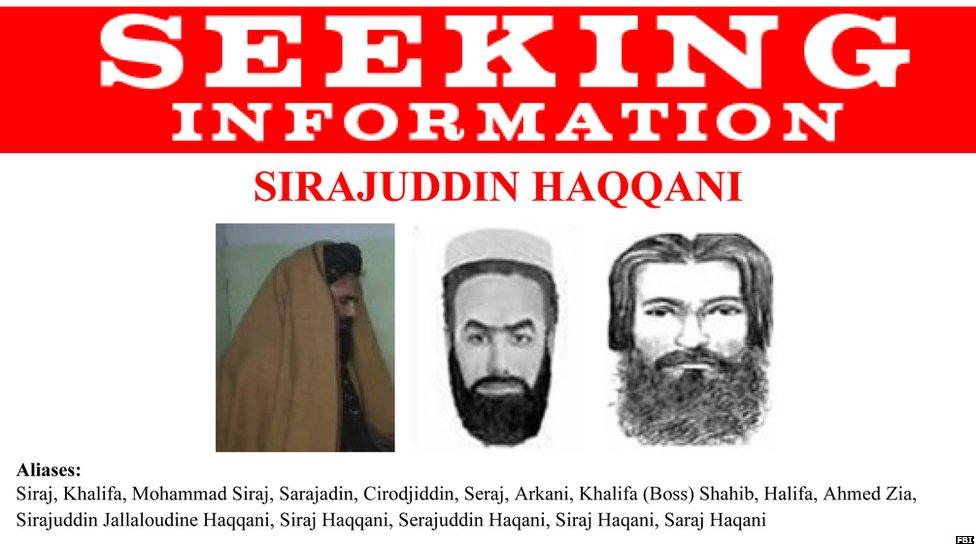Mullah Omar: Taliban choose deputy Mansour as successor
- Published

Some analysts say the Taliban will be divided by the appointment of Mansour as successor
The Taliban have appointed a successor to Mullah Omar, who led the movement for some 20 years.
The death of Mullah Omar - reported by the Afghan government on Wednesday - was confirmed by the Taliban on Thursday, the BBC has been told.
His deputy, Mullah Akhtar Mansour, will replace him, sources close to the Taliban leadership said.
Correspondents say the move is likely to divide the militants, and that many senior figures opposed the appointment.
A Taliban statement did not say where, when or how Mullah Omar died, only that it was from an illness and that he had remained in Afghanistan since the 2001 US invasion.
This conflicts with the account given by Afghanistan, which said Mullah Omar died in hospital in the Pakistani city of Karachi two years ago. Pakistan has always denied that he was in the country.
Mullah Omar dead: What we know, in 1 minute
The death has disrupted peace talks between Afghanistan and the insurgents, with a second round of negotiations due on Friday postponed.
Pakistan, which had been set to play host, said they were put back at the request of the Taliban's leadership amid uncertainty over Mullah Omar's death.

Analysis: Waheed Massoud, BBC Afghan editor, Kabul
The naming of Mullah Mansour as Taliban leader was far from unanimous and followed days of intense debate.
Sources close to the movement's leading council, or shura, say many senior commanders and other Taliban heavyweights were dismayed by the decision.
They are thought to include the movement's top military commander, Mullah Qaum Zakir, as well as Tayeb Agha, the head of the Taliban's political office in Qatar, and Mullah Habibullah, a member of the Quetta shura. They would have preferred Mullah Omar's son, Yaqoob, to succeed him, and accuse pro-Pakistani circles of imposing Mullah Mansour on the rebels.
A Taliban statement distancing the movement from more talks with the Afghan government reflects splits over how to proceed.
However, Mullah Mansour is pro-talks.

The group appointed Siraj Haqqani, a key leader in another major Afghan military group, the Haqqani network, as Mansour's deputy, sources said.
Haqqani has a $10m (£6.4m) US bounty on his head for alleged involvement in an attack on a Kabul hotel that left six people dead and for his participation in cross-border attacks on US and coalition forces.
Mansour becomes only the second person to lead the Taliban after Mullah Omar, who founded the group during Afghanistan's civil war in the early 1990s.

The Taliban also has a new deputy leader, who is wanted by the US
His alliance with al-Qaeda leader Osama Bin Laden prompted the US-led invasion of Afghanistan in 2001.
He had been in hiding ever since, and although was not thought to have significant day-to-day involvement in the group remained a key figurehead.
The failure to prove that Mullah Omar was alive was a major factor behind the defection of several senior Taliban commanders to the so-called Islamic State group, according to the BBC's former Kabul correspondent, David Loyn.

Who is Mullah Mansour?
Long seen as acting head of the Taliban, and close to its founder Mullah Omar
Born in the sixties, in Kandahar province, where he later served as shadow governor after the Taliban's fall
Was civil aviation minister during the Taliban's rule in Afghanistan
Had an active role in drug trafficking, according to the UN
Has clashed with Abdul Zakir, a senior military commander, amid a power struggle and differences over negotiations with the Afghan government
A man claiming to be Mansour met former Afghan President Hamid Karzai for peace talks in 2010 - but it later emerged he was an imposter, external
